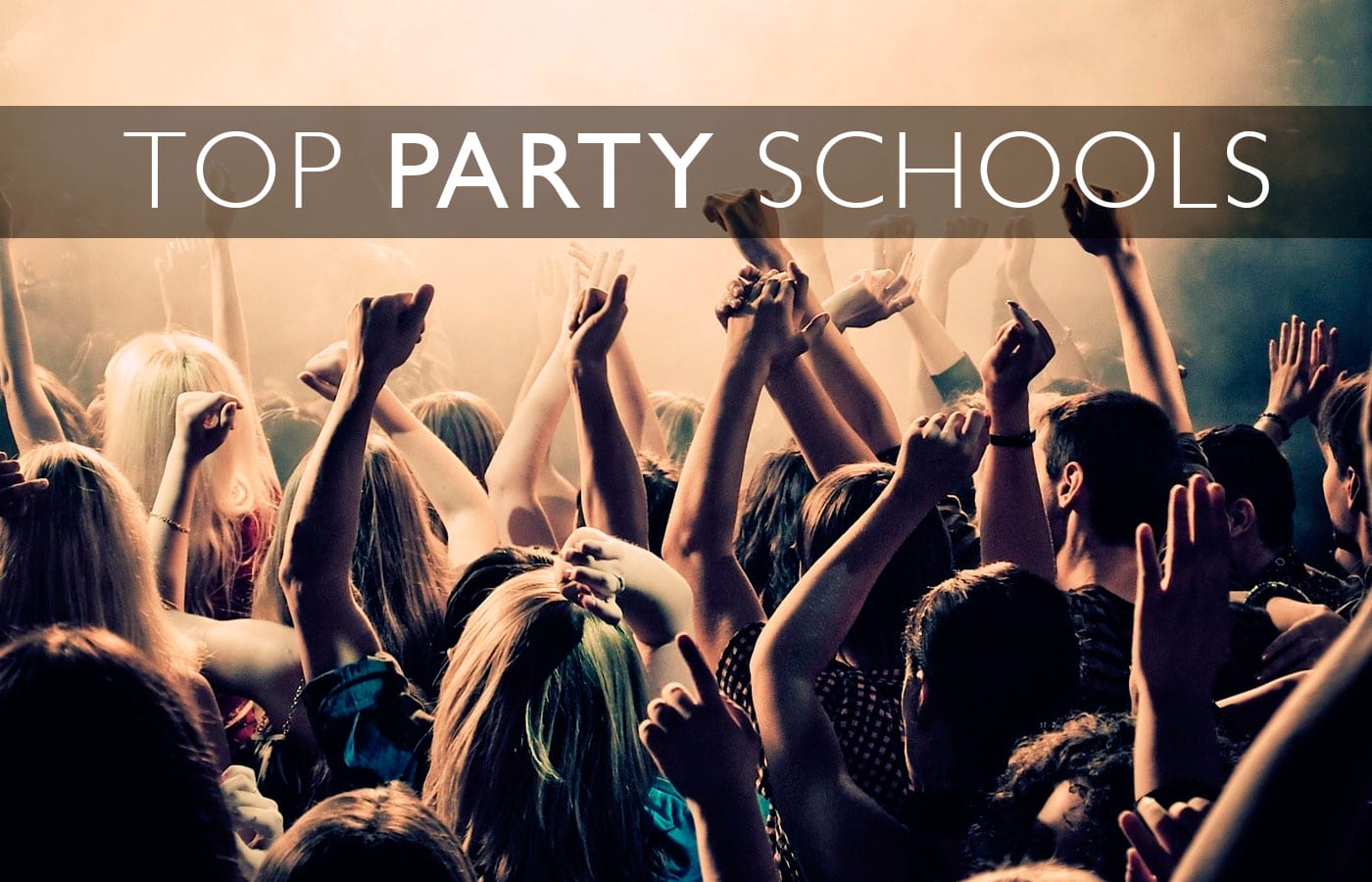Schools back in session, and everyone’s talking about the recently released list of Princeton Review’s Top Party Schools. The new buzz is that Syracuse University, in upstate New York has upset the applecart by being the first small, private university to top the list at #1. Syracuse was quick to play down this “non-honor,” citing their qualities as a top-notch academic institution as it’s attraction rather than it’s merrymaking.
What is a Top Party School?
Every year, colleges across the United States are compared for the distinction as a Top Party School. They may not boast their drinking careers but they do little to stop it. What does this say about the American educational system, our culture and the rapidly growing addiction problem among our youth? If you think there is any relevance in giving value to lists, then read on.
Based on surveys taken from 130,000 students, the Princeton Review has released their 2014-2015 annual rankings of colleges. The party aspect of the review is the attention grabber and is compiled from student survey answers to questions about the use of alcohol and drugs on campus. The alcohol and drug survey is broken down into the do and don’t or yes and no type scenario shown below:
Lots of Beer or Got Milk? Both lists are based on students’ answers to the survey question: “How widely is beer used at your school?”
Lots of Hard Liquor or Scotch and Soda, Hold the Scotch? Both lists are based on students’ answers to the survey question: “How widely is hard liquor used at your school?”
Reefer Madness or Don’t Inhale ? Both lists are based on students’ answers to the survey question: “How widely is marijuana used at your school?”
Questions relating to the amount of hours of study per day and the popularity of the Greek Fraternity and Sorority clubs found on campus also attribute to a school attaining party status.
The Princeton Review
Other questions asked on the Princeton review are: Are your instructors good teachers? – How accessible are your instructors outside the classroom? – How do you rate your school’s campus health services? – Overall, how smoothly is your school run? – Overall, how happy are you? – How do you rate the food on campus? – Politically, are you: Leftwing, Democrat, Middle, Republican, Rightwing? – How popular are intercollegiate sports at your school? – How do you rate your campus newspaper? – How do you rate your college’s theater productions?
Some sources dismiss the Princeton Review as inaccurate yet still it exists as a barometer that many use to decide where they want to spend the next four years of their lives. The risks of college binge drinking are notorious and it does not take a valedictorian to decipher the contradiction most colleges exhibit when they do little to address the reasons their school has qualified for the position, yet still accept the title.
Universities Making a Difference
The University of Vermont (#18 out of the top 20) is taking action to combat college drinking and has started by sending e-mails to parents prior to big party weekends and events, asking them to speak with their kids about high-risk drinking. Together with the police they are also identifying off campus housing that frequently generates complaints due to partying so hat they may address the inhabitants. Furthermore, when any UVM student visits the campus health clinic they are asked about their alcohol consumption and a doctor will become involved if it appears necessary. More schools could follow the University of Vermont’s lead.
The Impact of “Top Party Schools”
What does the attitude of worshiping top party schools portray to young people in regards to the importance of choosing a school that will fortify their academic goals? What does idolizing schools famous for binge drinking and parties say about our culture? Does the Princeton Review do academia a disservice by publicizing this review?
One interesting fact is that Florida continues to make the list twice each year for the last few years, as #10 and #12, proving that there is really nothing going on in Florida!
Note: No ranking list reflects The Princeton Review’s opinion of (or rating of) the colleges. A college’s appearance on a ranking list in the book is entirely the result of what its own students surveyed by The Princeton Review reported about their campus experiences as well as how they rated various aspects of their college life.

